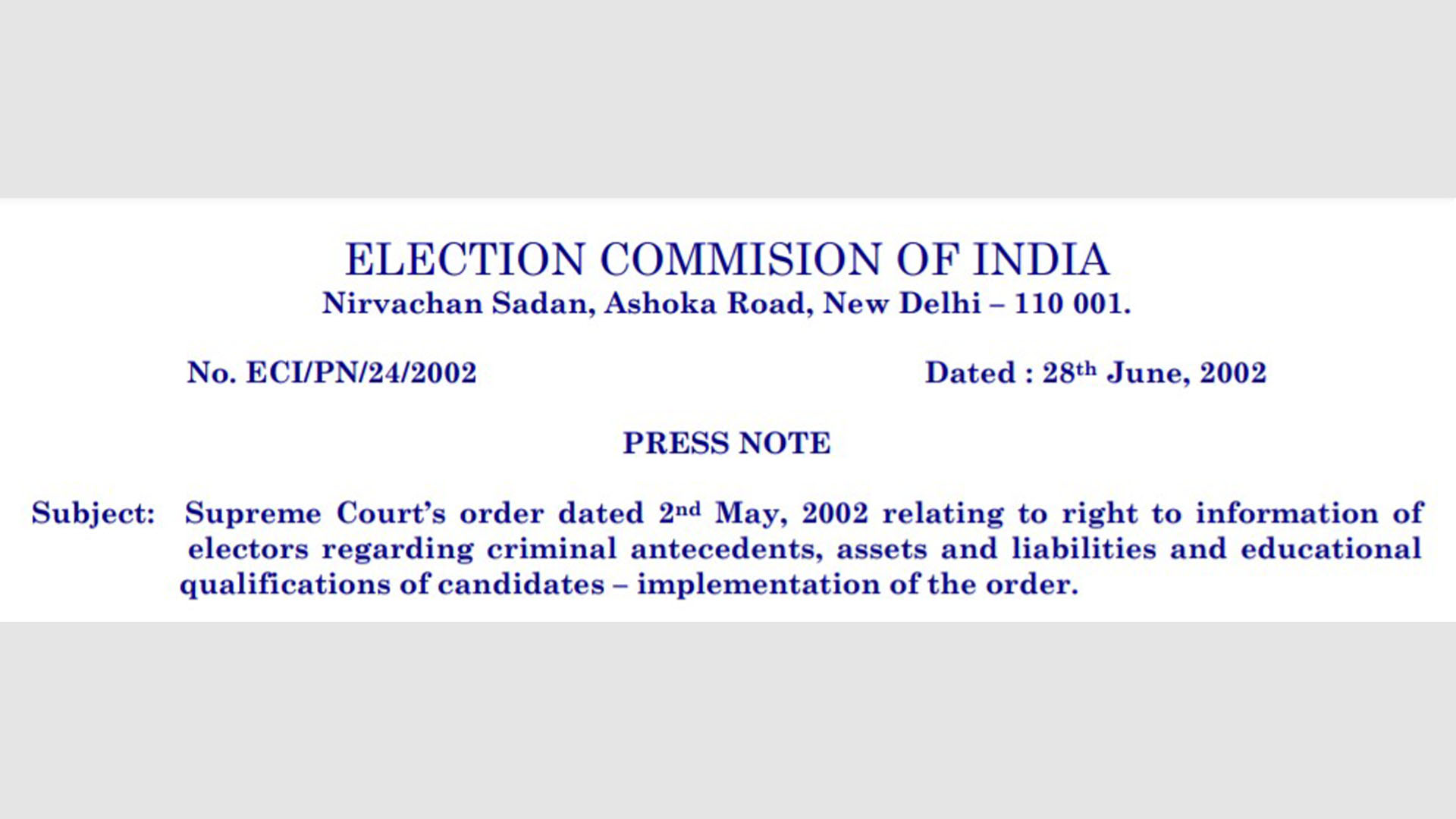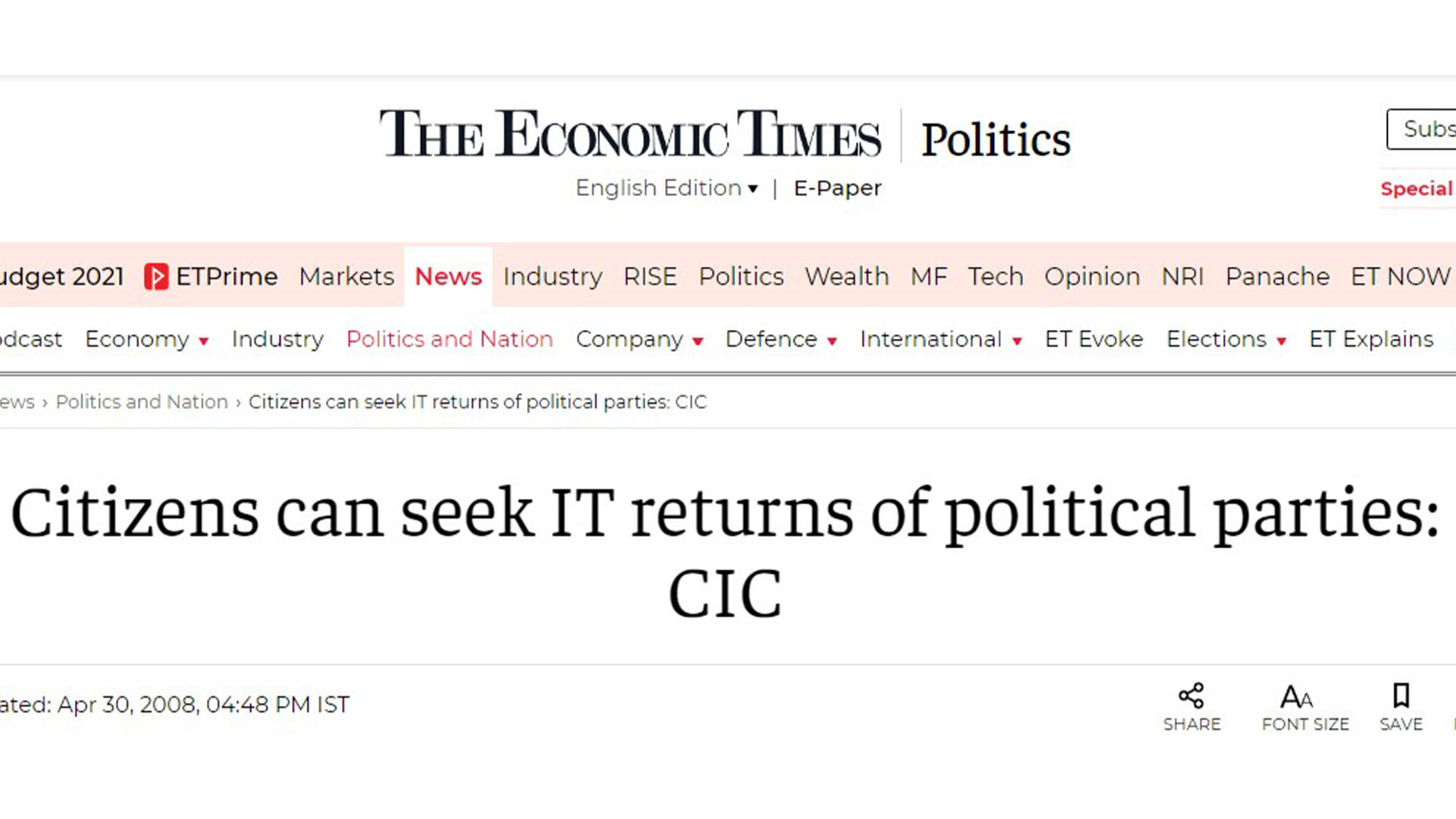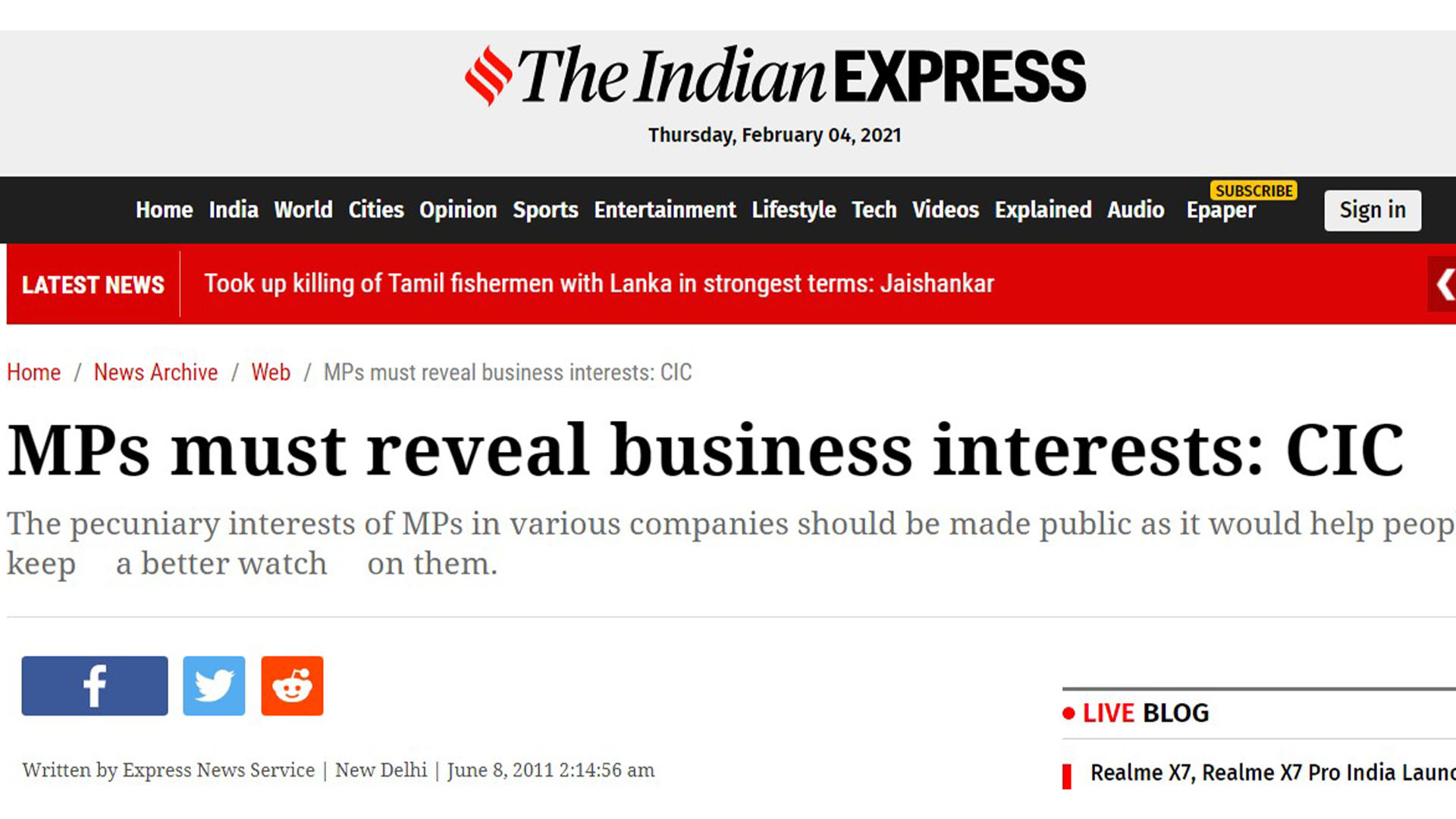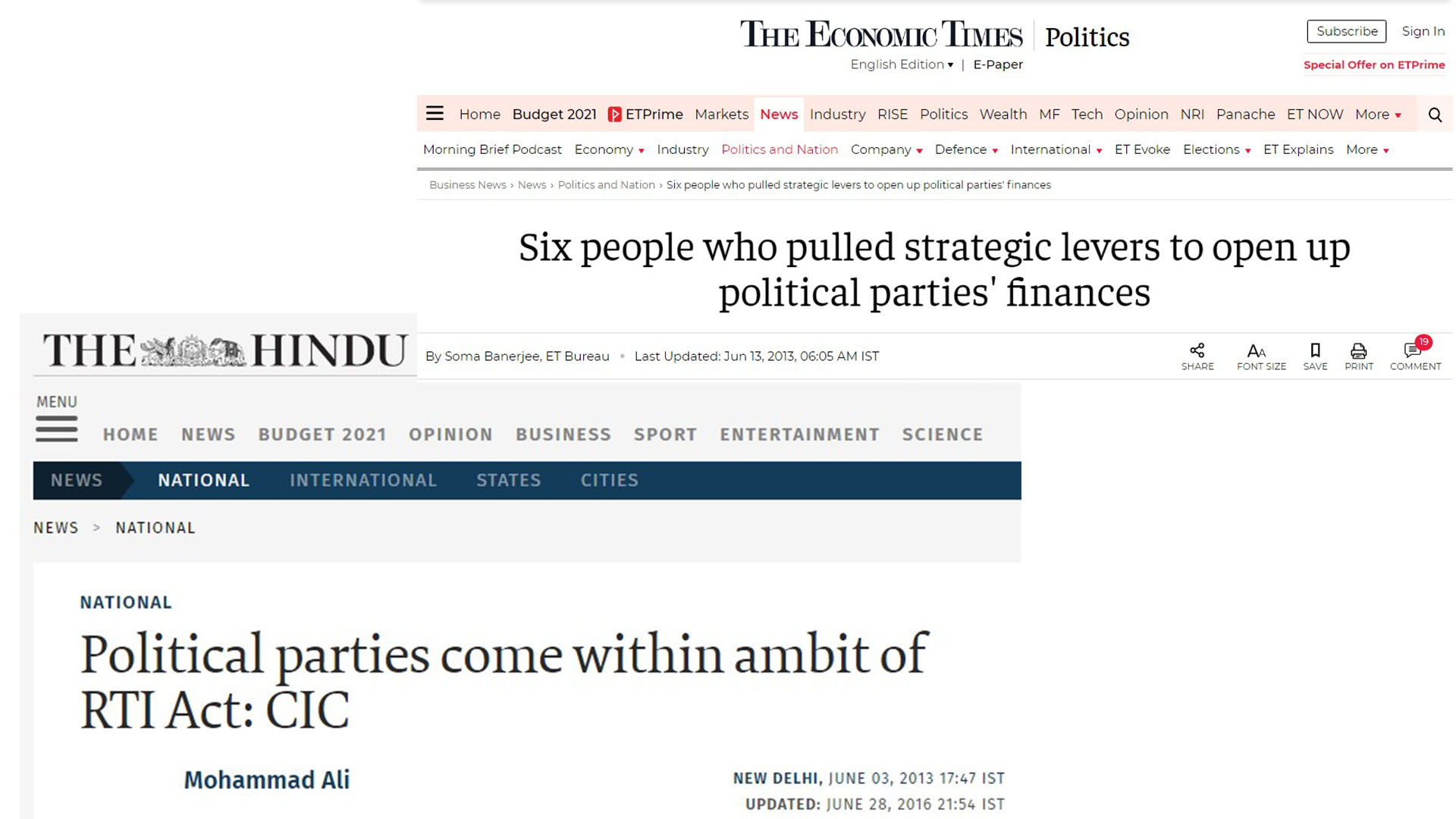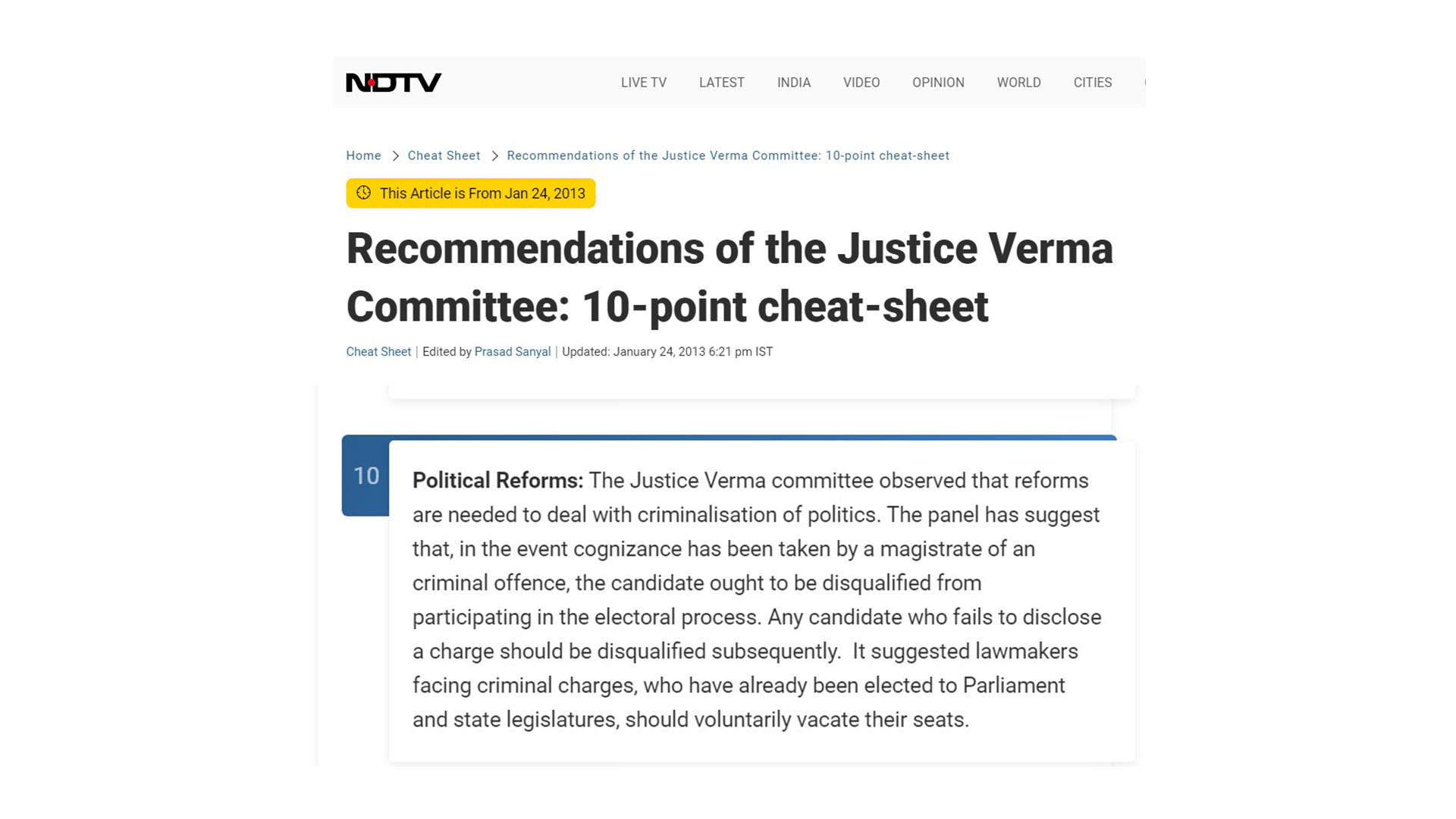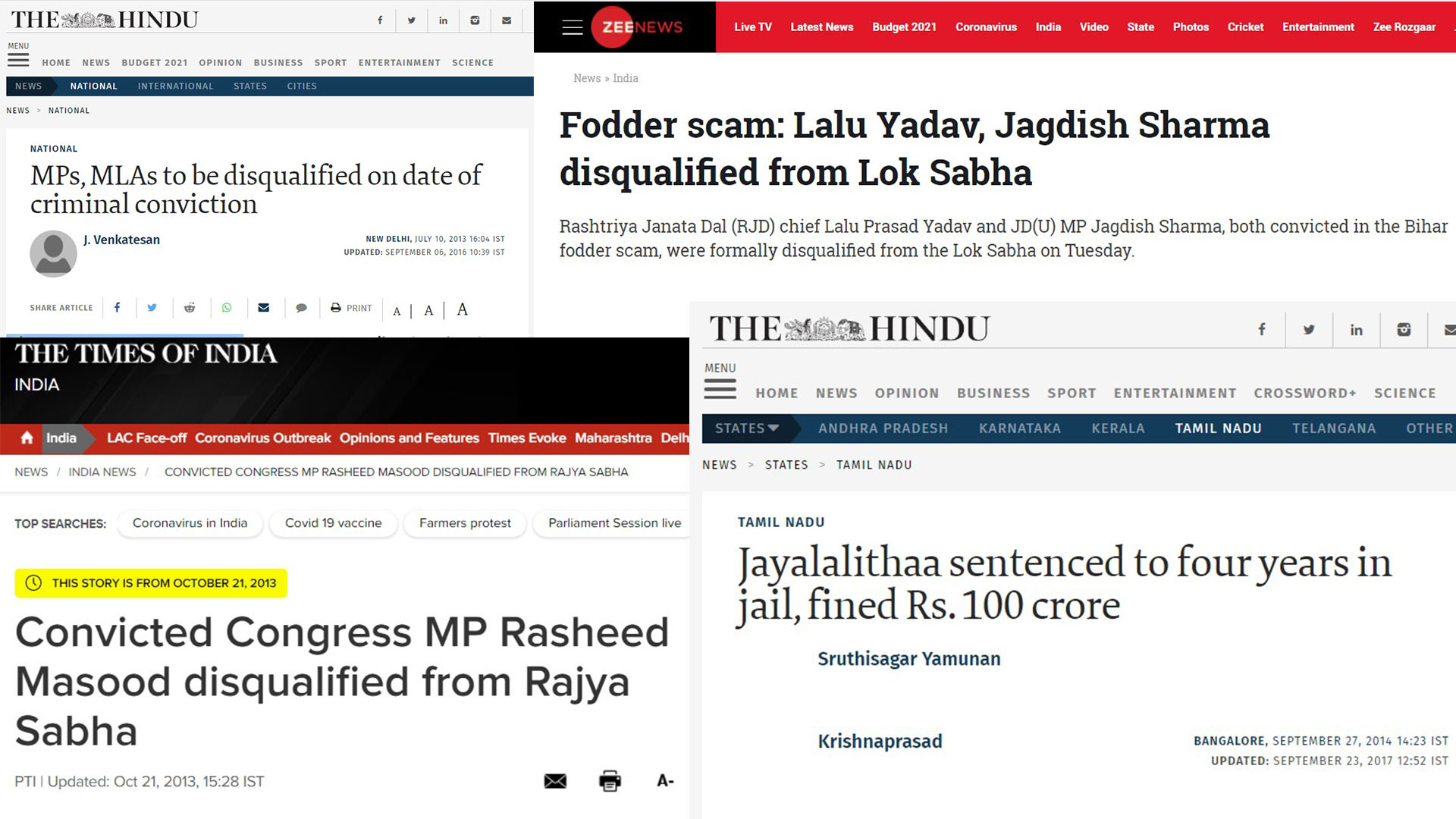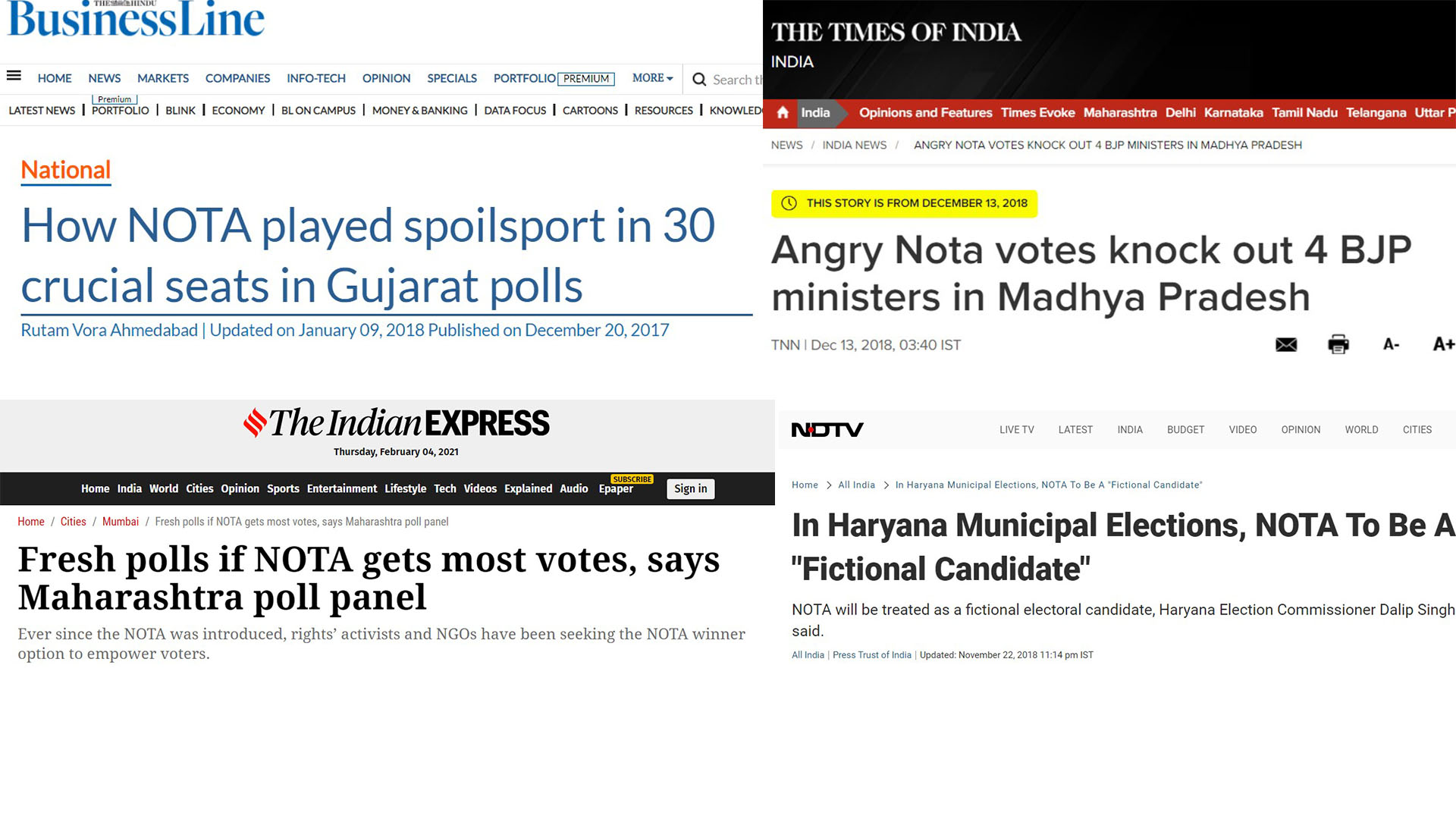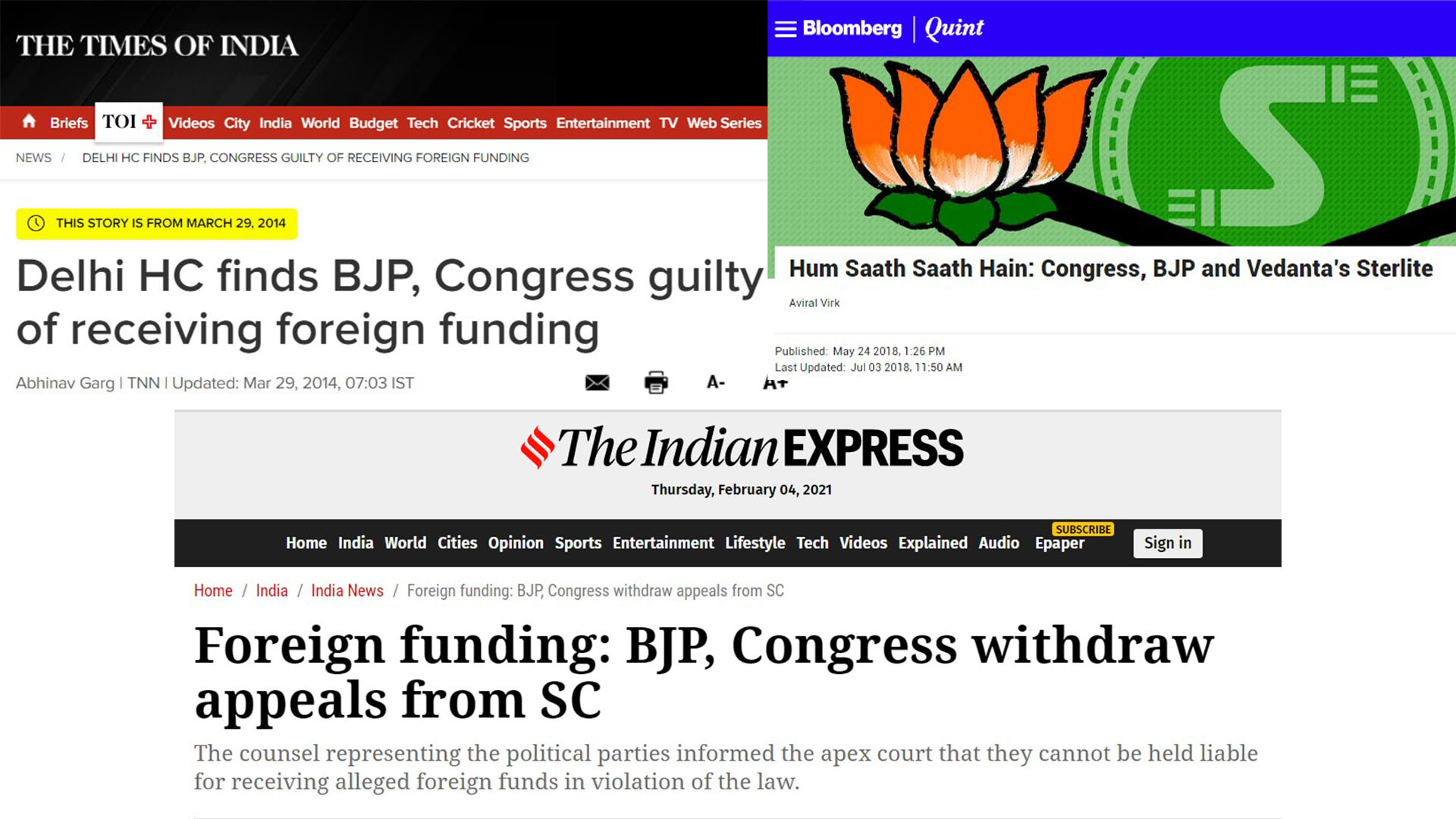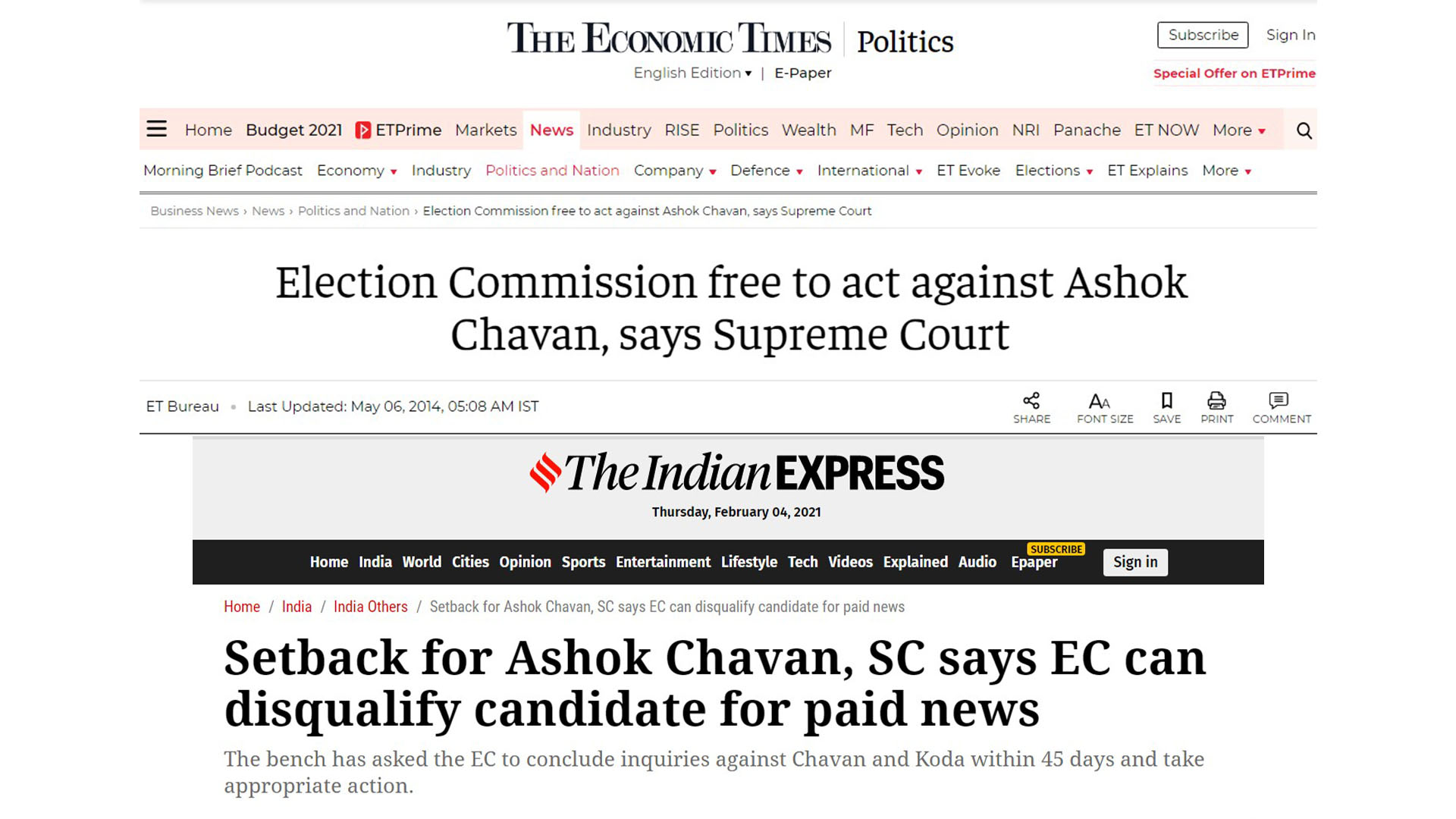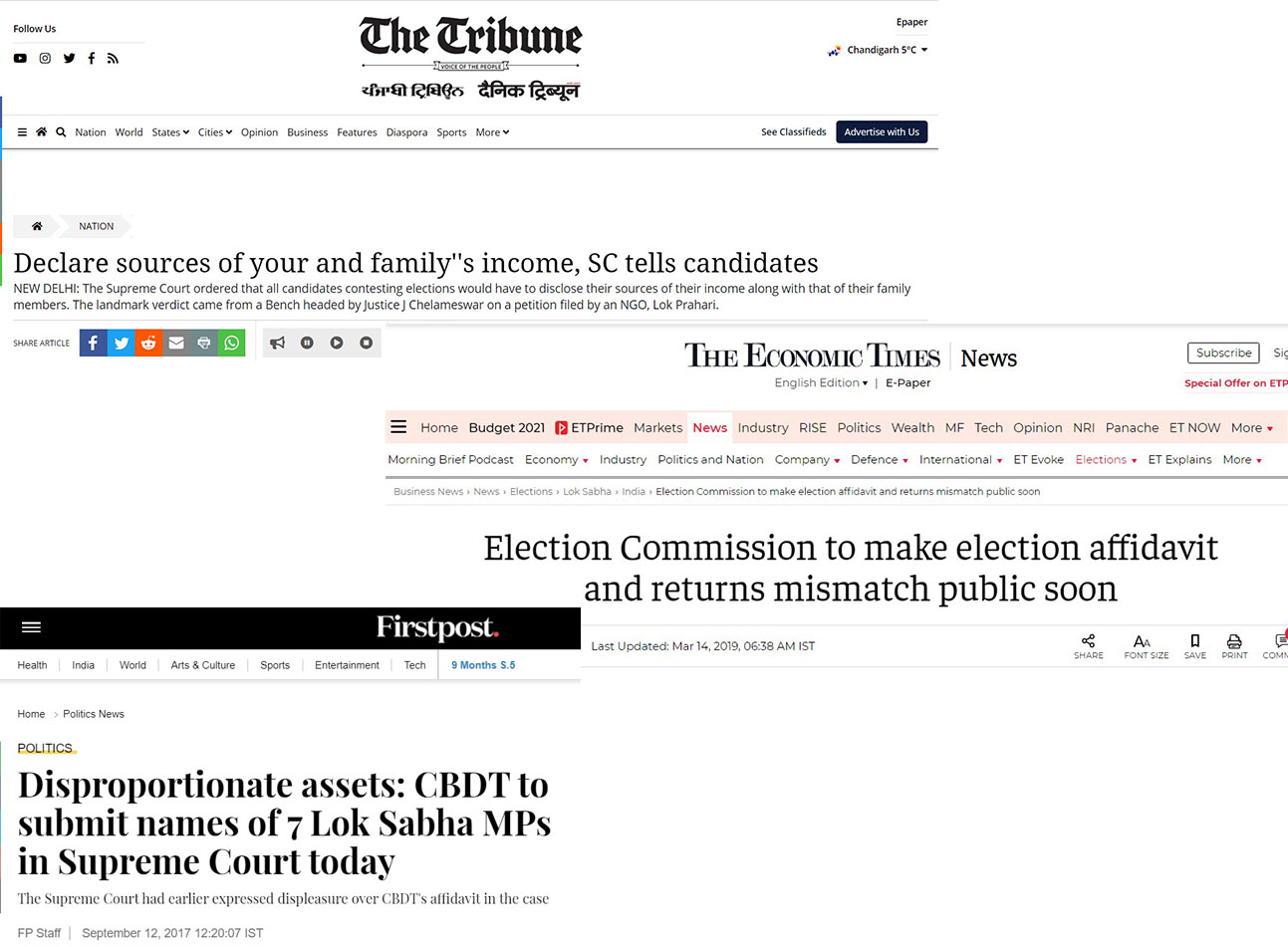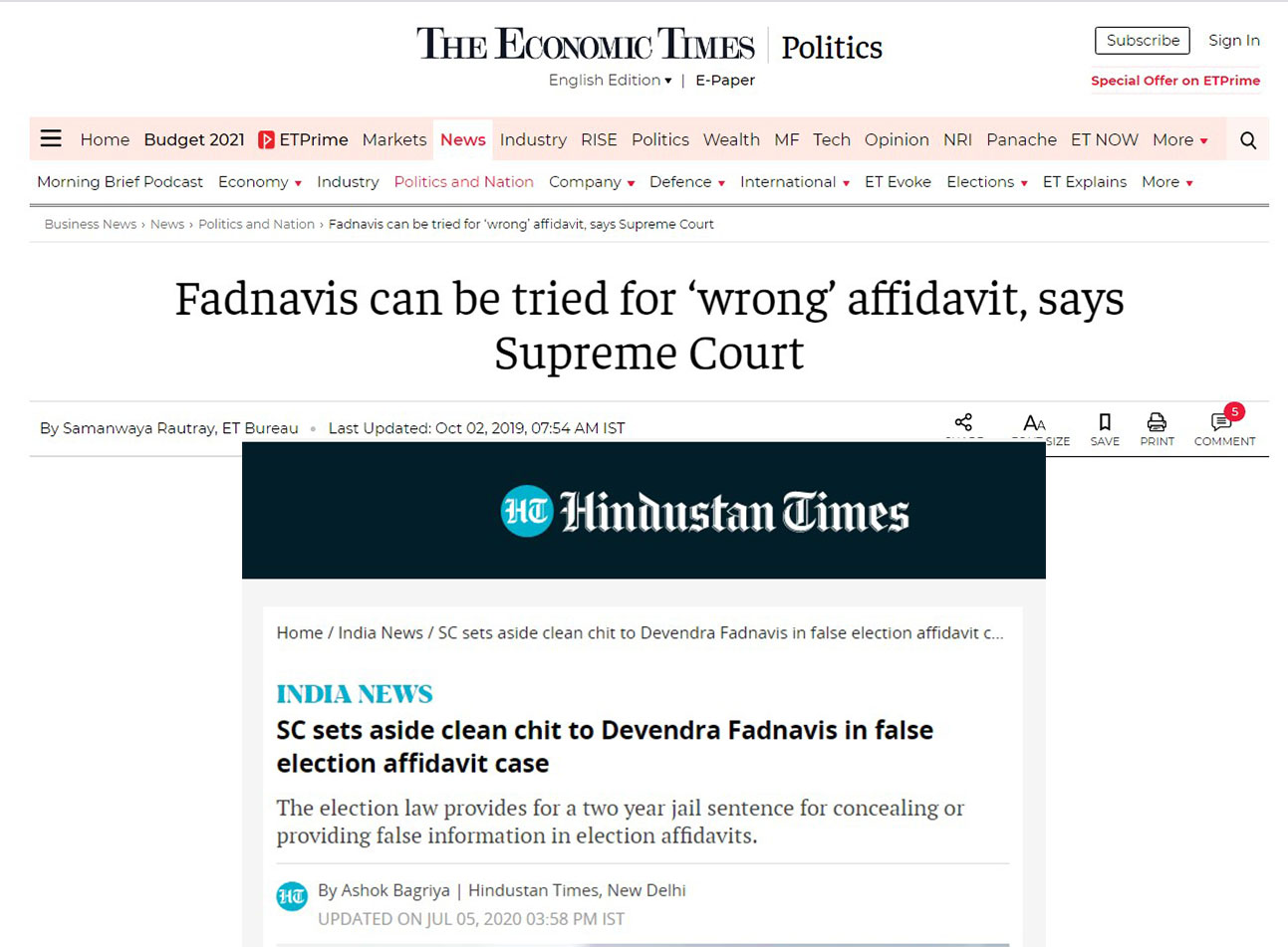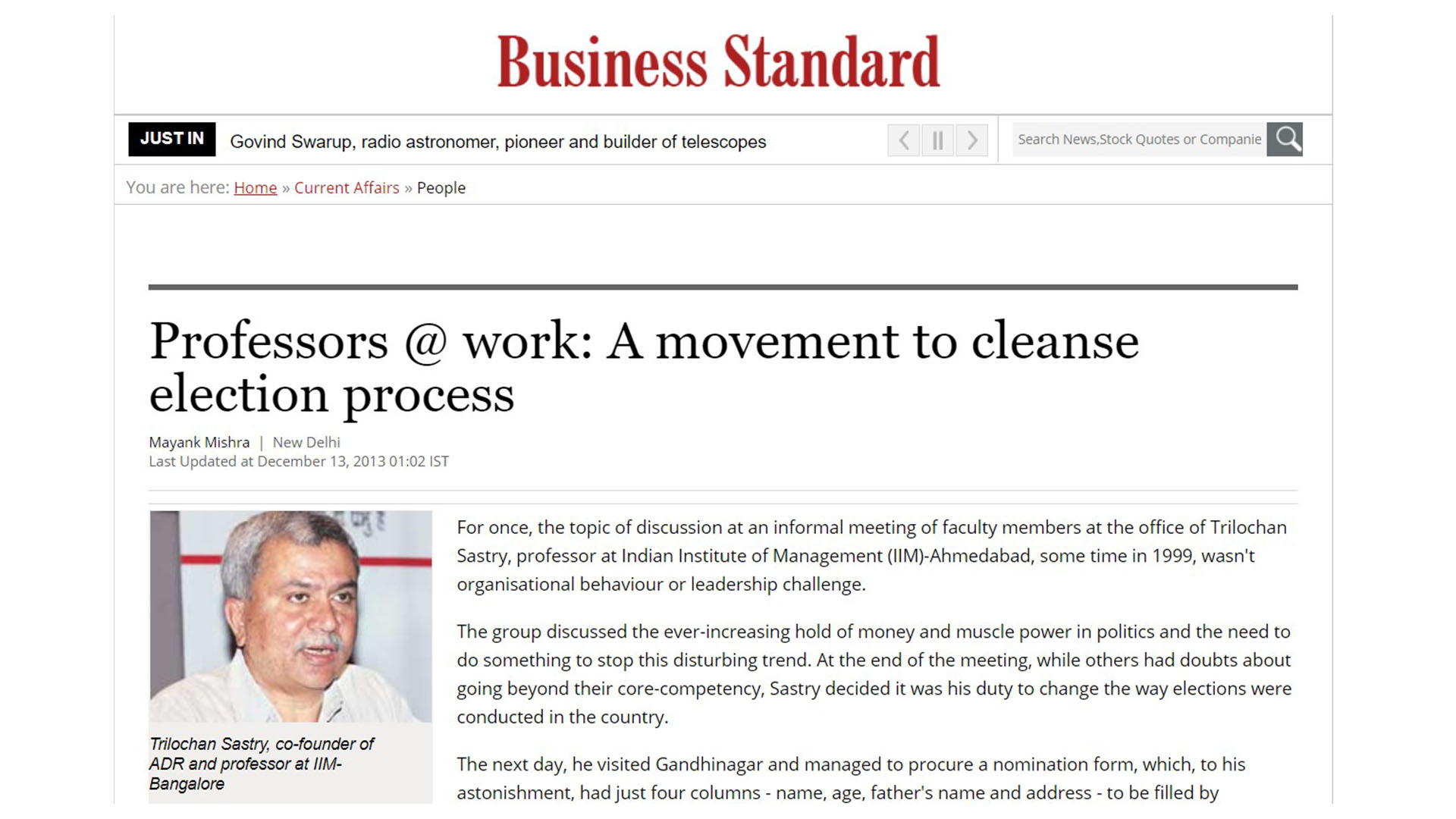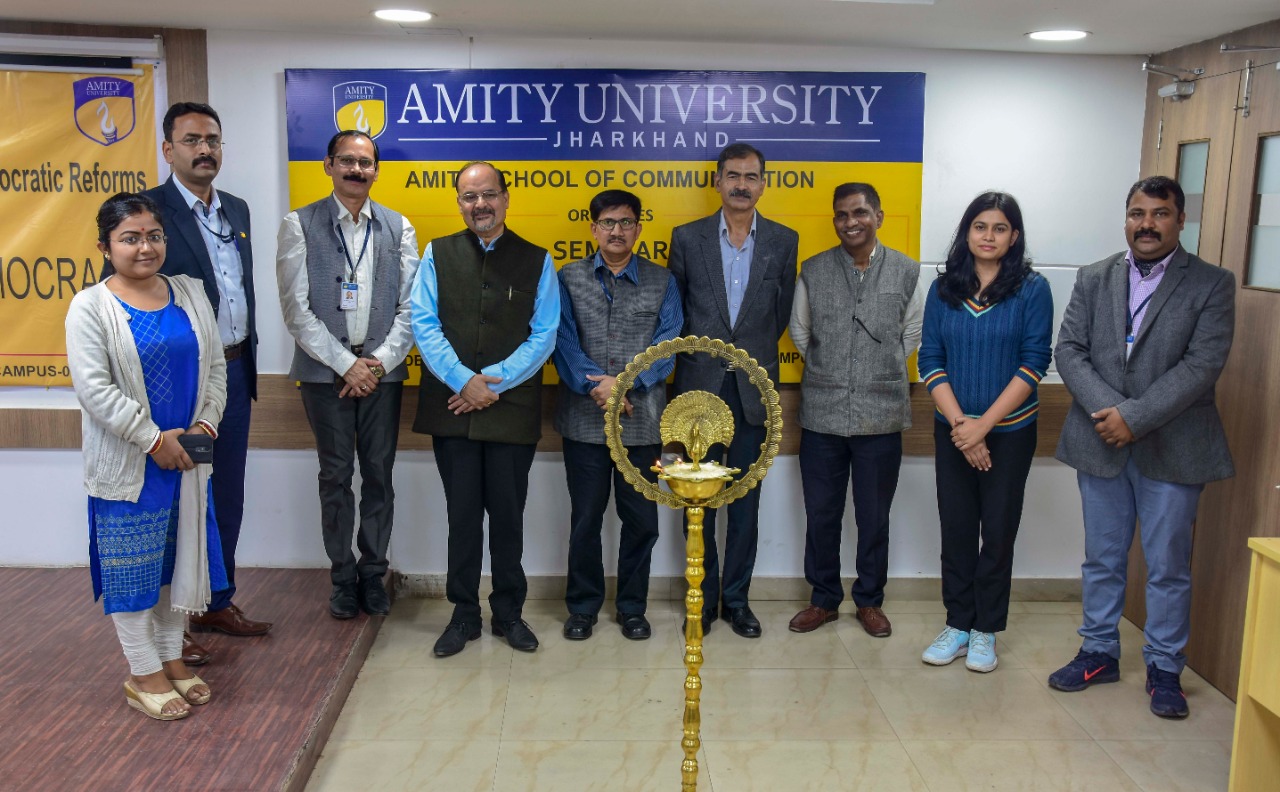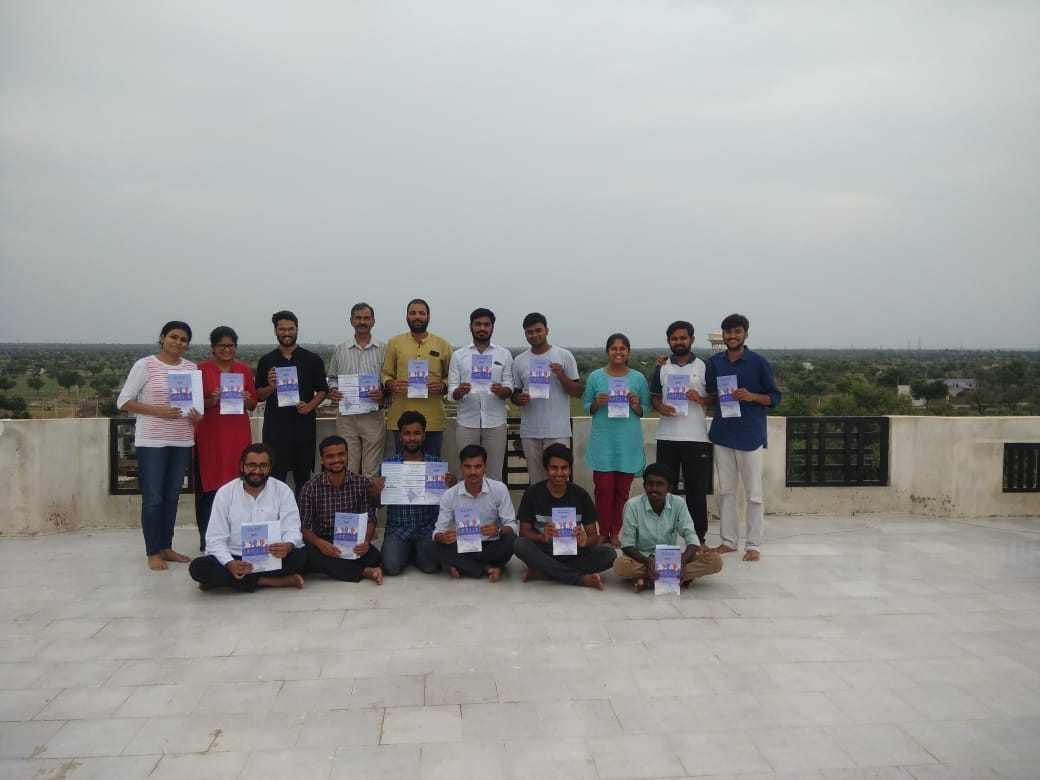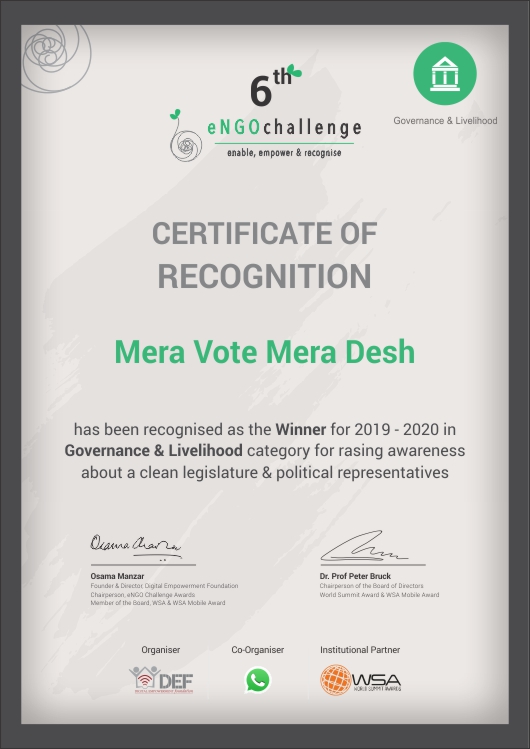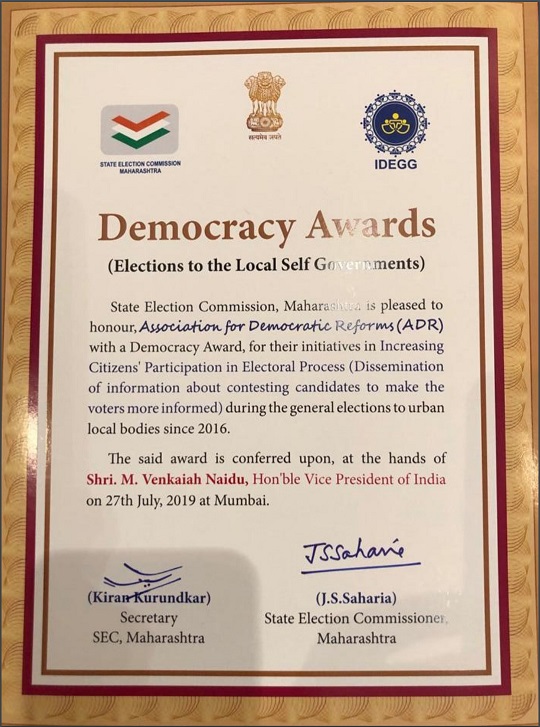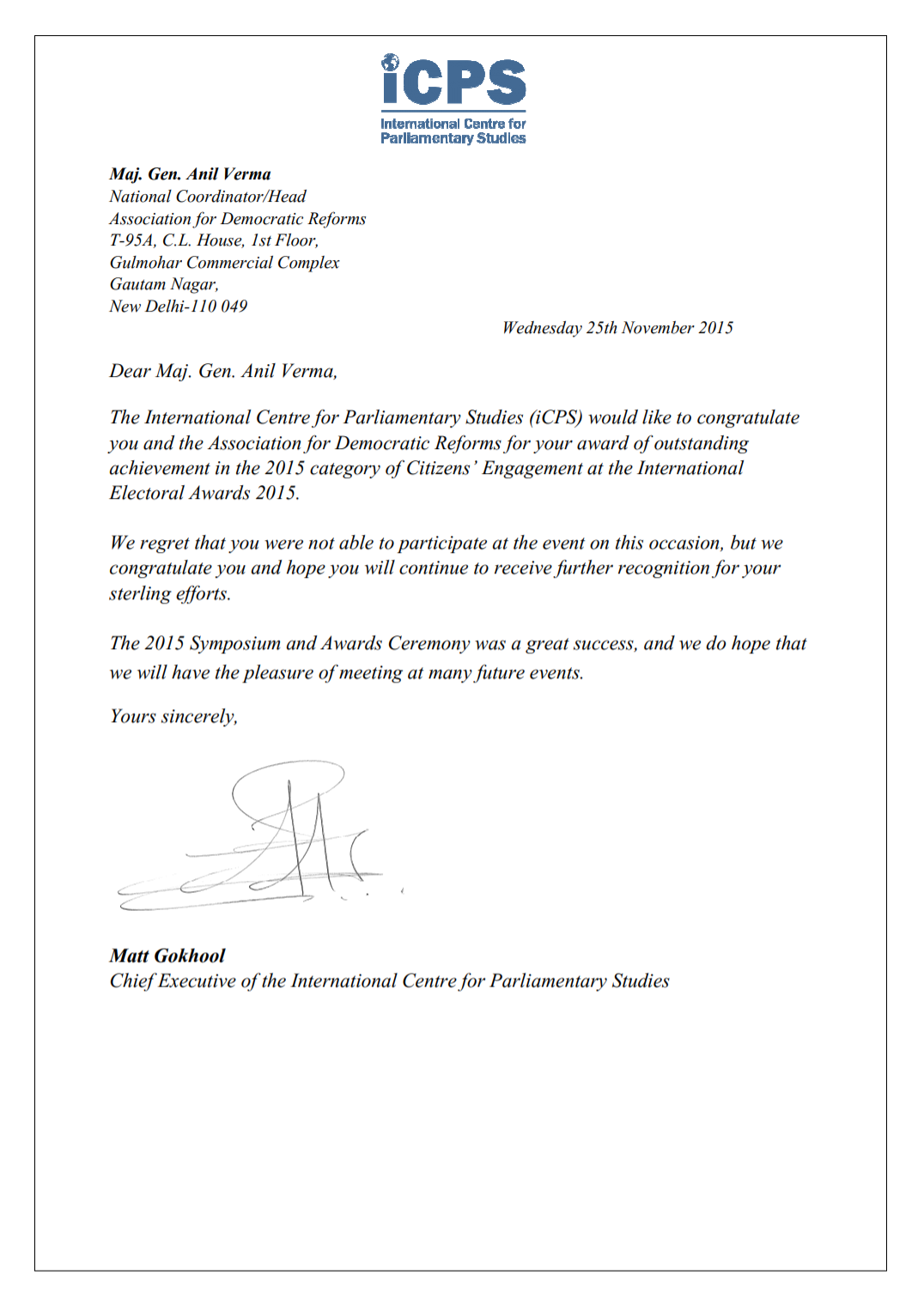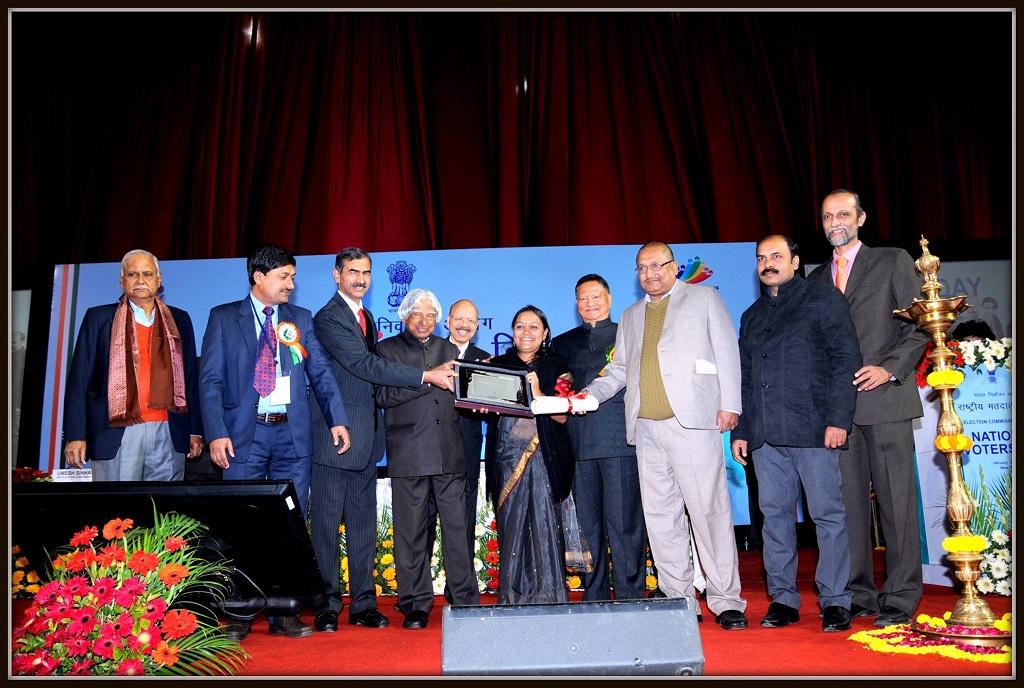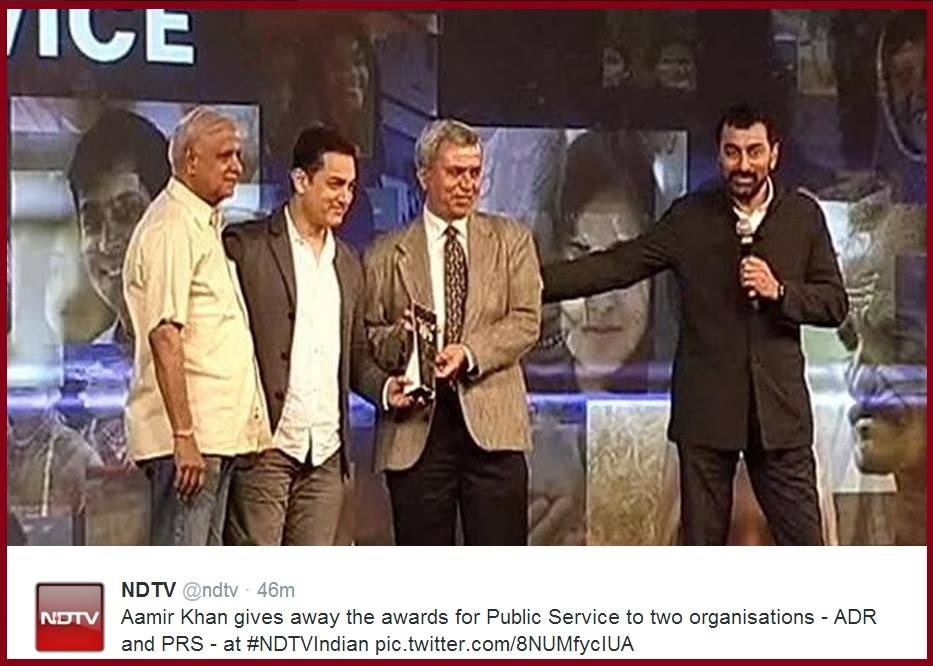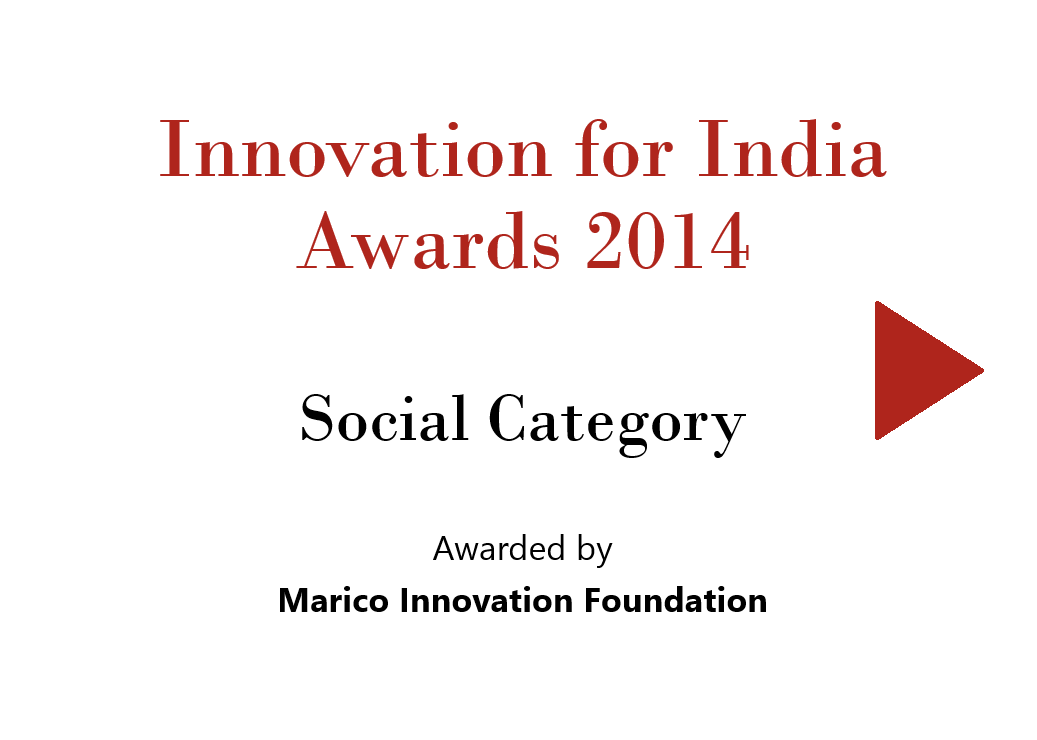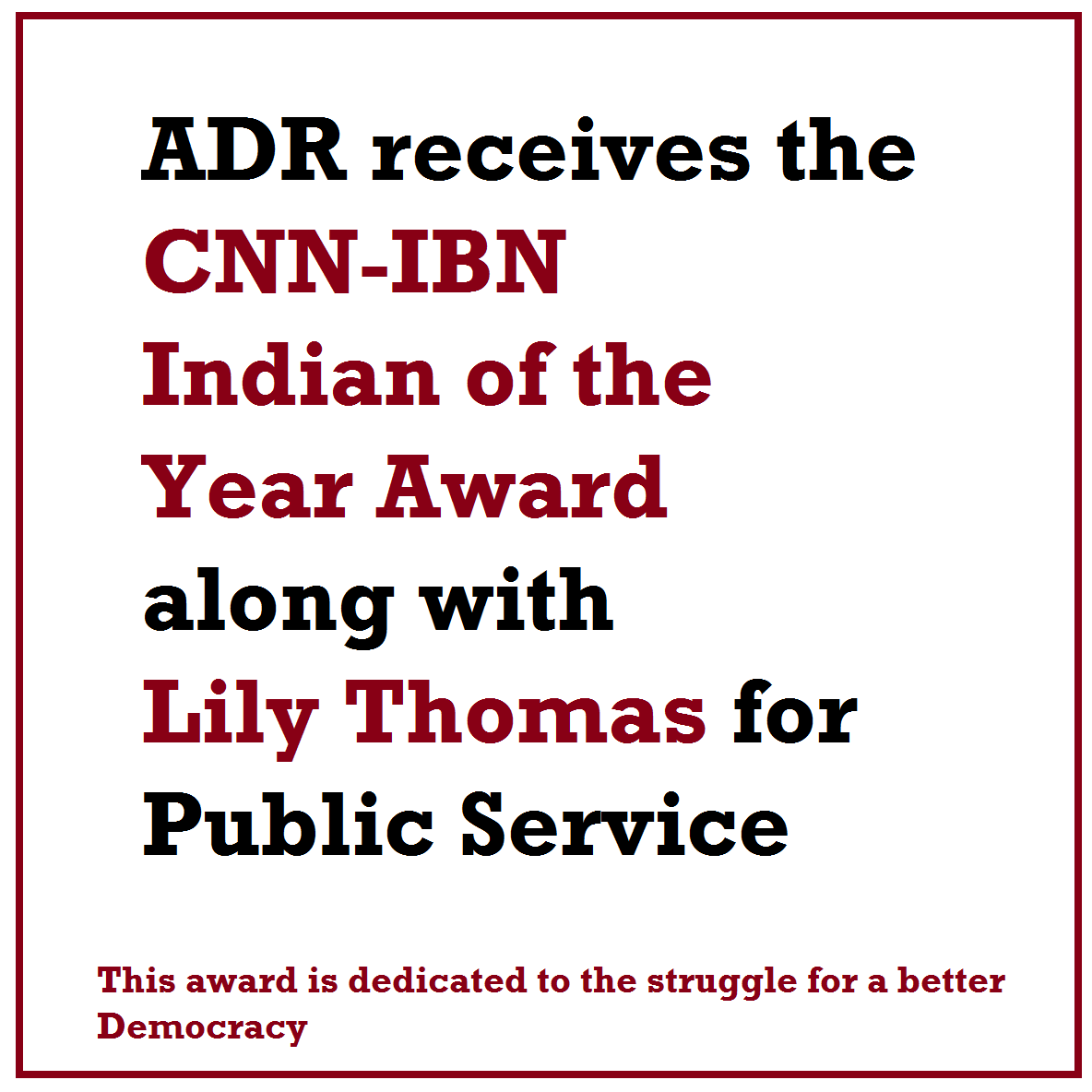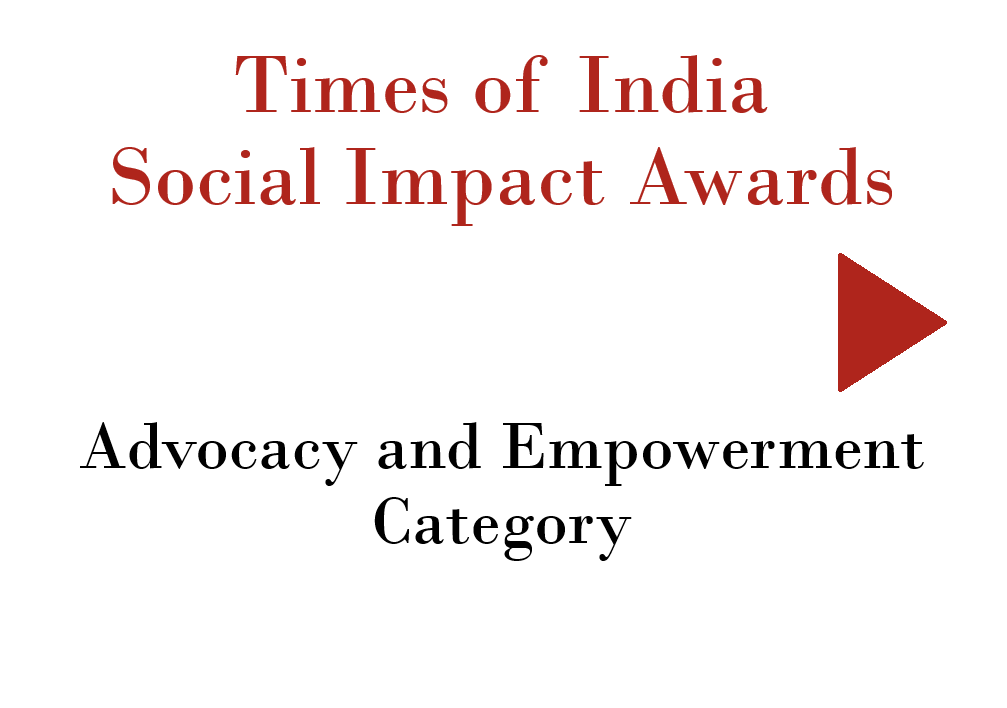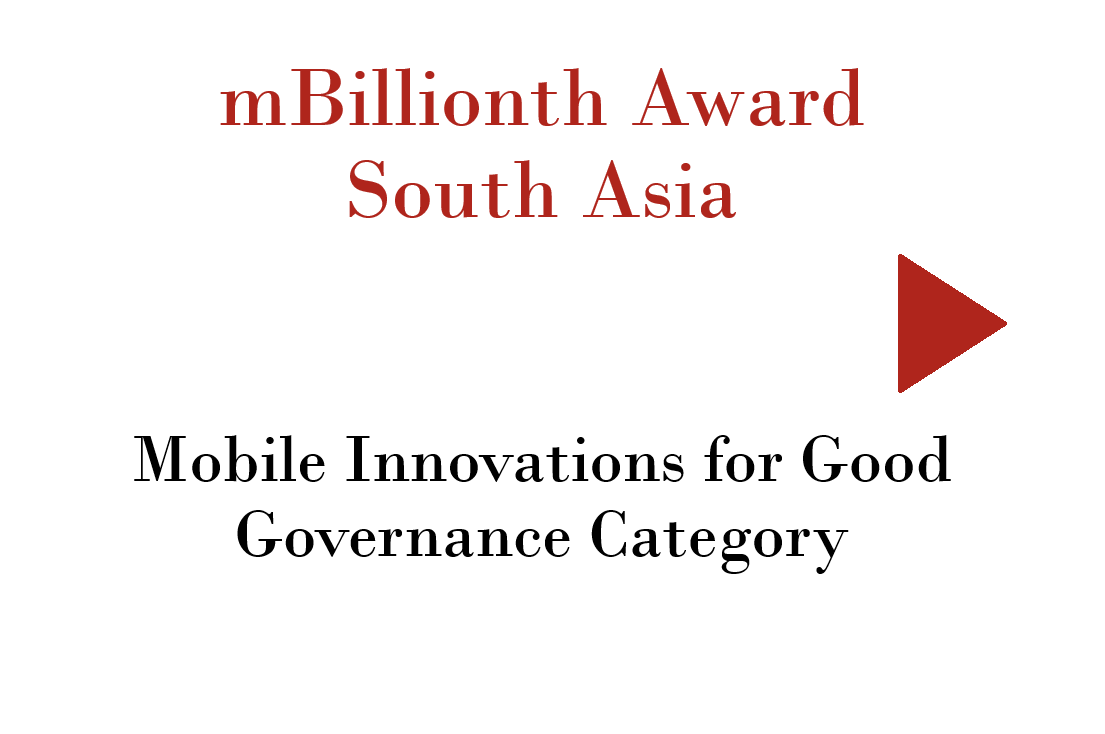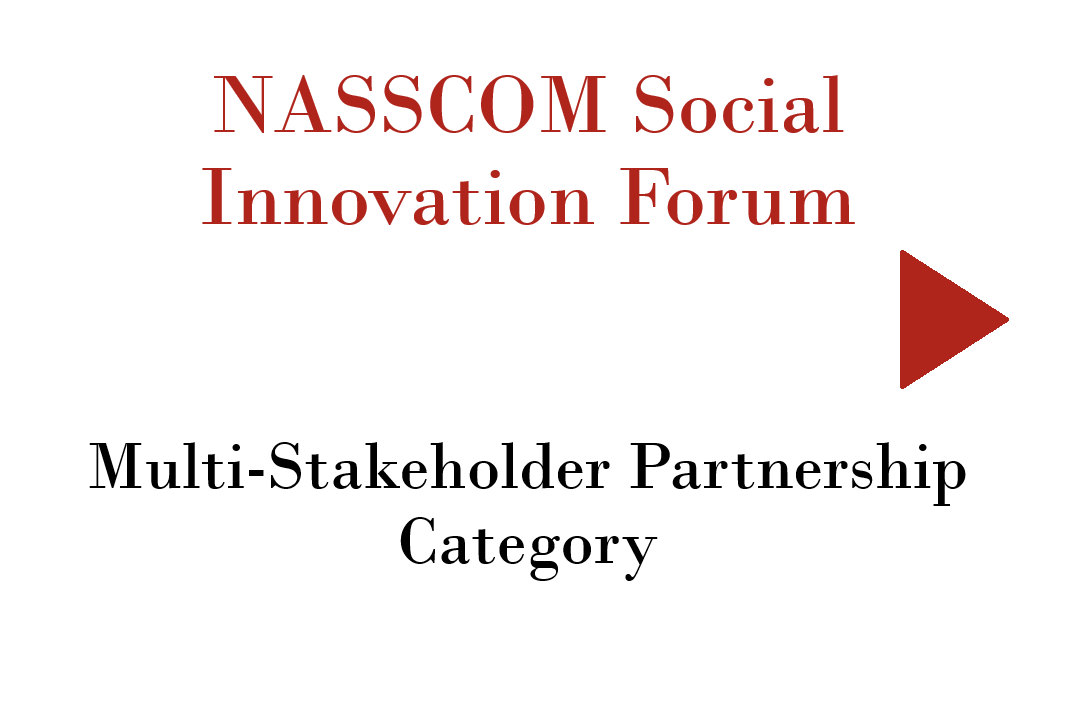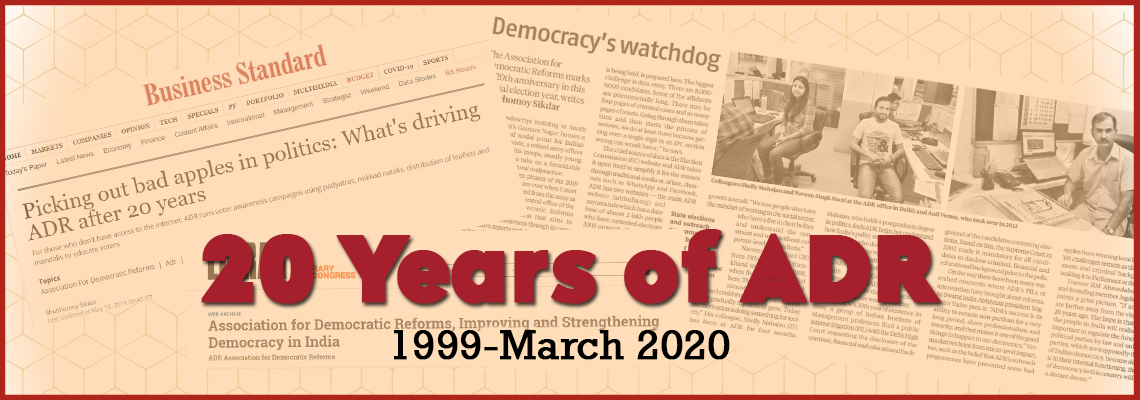
Election Watch
2002
Year started in
868
Reports Released
179253
Candidates Analysed
4
Lok Sabha Elections
Since 2008
Rajya Sabha Elections
102
State Assembly Elections
All 6 States
Legislative Council Elections
20
Local Body Elections
REPORTS
- Analysis of Criminal, Financial, Education, Gender and other background details of contesting candidates, MPs, MLAs, MLCs and ministers.
- Analysis of Assets Comparison of Re-Contesting MPs and MLAs.
- Analysis of Election Expenditure Statements of MPs and MLAs.
- Analysis of Vote Share and Margin of Victory of MPs and MLAs.
- Analysis of Performance of MLAs.
- Analysis of the Register of Members' Interest of Rajya Sabha MPs.
- Analysis of NOTA Votes.
- Analysis of Criminal, Financial, Education, Gender and other background details of contesting candidates and Winners of local body elections.
- Analysis of MPs/MLAs with Declared Cases Related to Crimes against Women.
- Analysis of MPs/MLAs with Declared Cases Related to Hate Speech.
Political Party Watch
2008
Year started in (Data available from 2001-02)
148
Reports Released
Election Expenditure Reports (2004-19)
Assembly Elections
96
Elections for which election expenditure reports were created
620
Political parties whose election expenditure details were analysed
Lok Sabha Elections
4
Elections for which election expenditure reports were created
149
Political parties whose election expenditure details were analysed
605
Parties whose audit reports have been analysed by ADR till date.
Click here to see details
432
Parties whose contributions reports have been analysed by ADR till date.
Click here to see details
84
Electoral trusts whose contributions details were analysed since FY 2013-14.
Click here to see details
294
Registered unrecognised parties whose various reports have been analysed.
Click here to see details
Legal Advocacy
Landmark Judgements for ADR
Where ADR was the party (petitioner/intervenor)
- In case the candidate is accused of any offence punishable with two years or more, and charges have been framed by the Court, information such as the FIR No., Case No. and the date of framing of charges;
- Details of conviction in any case not included in Section 8 of the RPA, where the sentence was for one year or more;
- PAN Number and status of filing of Income Tax Return for the candidate, spouse and dependents;
- Details of movable and immovable assets the candidate, spouse and all dependents;
- Details of liabilities of the candidate to public financial institutions or to the government; and
- Details of profession or occupation and of educational qualifications.
- Sources of income of spouse and dependents to be included in form 26 (affidavits).
- Permanent mechanism for scrutiny of affidavits.
- Non-disclosure of assets and sources of income would amount to ‘undue influence’ – a corrupt practice under Section 123(2) of the RP Act of 1951.
- Information regarding the contracts, if any with the appropriate government either by the candidate or his/her spouse and dependents.
On 1st October, 2019, the Supreme Court held that in order to maintain purity of elections and healthy democracy, voters are required to be educated and well informed about the contesting candidates and therefore held that details of all pending cases in which cognizance has been taken by the Court, irrespective of the quantum of punishment or framing of charges will have to be disclosed by the candidate. The court also ordered for a fresh trail from trial Court.
Other landmark judgments on electoral and political reforms where ADR's data was quoted
Orders by Central Information Commission
Information Technology
Milestones achieved by the IT team
- SMS campaign was initiated during the Lok Sabha 2009 elections where on sending pincode of the area information regarding the contesting candidates of a constituency was provided to the users. The number of users who utilized these services reached about a lakh during the lok sabha elections. The campaign was run during state assembly elections too and has now been made part of the election watch process.
- Websites nationalelectionwatch.org and myneta.info were updated with live information of the contesting candidates in each phase of Lok Sabha polls. In fact, the site myneta.info had more than a million hits starting from zero during the recent elections and quickly reached into top 10,000 sites with respect to hits during the recent elections.
- ADR is also present on Facebook and Twitter
- Election watch tool has been enhanced to generate reports at the level of the candidates/winners (from Assembly, Lok Sabha and Rajya Sabha elections) and constituencies.
- The software used to map pincodes of areas can now also map constituencies. This will help in giving users information about the candidates based on their pin code as well as constituency through SMSs.
- The adrindia.org website was completely re-vamped to increase user accessibility.
- The Election Watch Software (EWS), which is the backbone of all our research work, has gone through a process of change and upgradation. EWS is the online tool used to feed information on antecedents of candidates. The changes were made to suit the new format of affidavits released by the ECI in 2011 and also for the analysis of election expenses. The online tool was also expanded to include information on the performance of MLAs and Assemblies.
- myneta.info underwent changes to display information on MP/MLA background details in a more user friendly way. Changes are further being made to include information on political parties like their Income Tax returns, donation details etc.
- An android application for the website has also been developed, available on play store
- Another android application called the Election Watch Reporter to help people report cases of electoral malpractices. The application al- Android application for myneta.info website lows the person to take a picture of any electoral malpractice and upload them with the GPS location. They app can be downloaded at:
- Maintenance of and updating the Election Watch Software: the online tool was revamped to include more reports for the Election Watch analysis during the Assembly elections of 2013 and during the Lok Sabha elections of 2014.
- The two android applications: MyNeta Disseminator and Election Watch Reporter were used during the election periods.
- The ADR India website was revamped for the Lok Sabha elections to highlight disseminating material (including celebrity videos, the ADR anthem etc.) and the election and survey reports.
- Political Party Watch Software: An online tool has been created for digitizing donation details of political parties in MyNeta.
- ADR Blog: ADR Speaks was launched as a platform for all the articles written by ADR Trustees, State Coordinators and employees on various subjects related to our work.
- Payment Gateway: Introduced to facilitate direct online payments through gateway at donations.
- Management of the ADR India website has been taken over completely by our inhouse IT team. It is also being continuously revamped to make it more reader friendly.
- Embedded infographic: Embedded infographics have been made in html for Lok Sabha book which can be embedded in the website as well.
- Collaboration with Maharashtra State Election Commission: For Local Body elections held in 2016 and 2017 Maharashtra SEC collaborated with ADR to analyse the candidate data of 192 Municipal Corporations, 20 Nagar Panchayats, 25 Zila Parishads and 283 Panchayat Samitis. While ADR IT team provided its inputs to Maharashtra SEC on how to improve their digitization software processes. Maharashtra SEC provided ADR with comprehensive candidate criminal, financial and other background data free of charge. ADR team analysed these data and released comprehensive reports prior to the local body elections.
- Map-based infographics: IT Team created map-based infographics for 5 States Assembly elections held in 2017. This allowed voters to quickly and interactively check their candidate’s data on the map of the state by clicking on their constituency.
- Danamojo Payment Gateaway: The IT team has Integrated Danamojo payment gateway on the adrindia.org donations page in order to facilitate online donations.
- Dissemination of ADR’s Reports through Whatsapp: A Whatsapp for business account has been created which will enable citizens to directly subscribe to ADR’s Whatsapp account, and updates such as Press Releases and Reports can be messaged directly to subscribers.
- Availability of Push Notification on ADR website: Online push notifications have been implemented on myneta.info to notify subscribers of release of new data/instances on myneta.info.
- Exclusive web page for Maharashtra Election Watch: A separate web page has been created exclusively for Maharashtra local body elections.
- Upgrade of Election Watch software tool: Key developments have been made in Election Watch Software code, including making reports sortable column-wise with a single click, income sources for self and spouse added, provision for adding built up area in commercial buildings and displaying bye-election data on myneta.info.
- Improved Security of the database: Security changes have been implemented on myneta.info and adrindia.org, with the addition of a Google recaptcha to prevent spam, Cloudflare protection to prevent DDoS attacks, debugging of code to prevent cross-site-scripting attacks, and installation of SSL certificates for website traffic encryption.
- Danamojo Challenge: ADR participated in DanaMatch Tax Saving Challenge, a challenge by ADR’s donation payment gateway on the adrindia.org in order to facilitate online donations.
- Multiple Webservers for Load Handling: From FY 2018-19, ADR has started using three web servers for hosting myneta.info website for load balancing. The aim of load balancing is to optimize the use of resources available, maximize throughput, minimize response time, and avoid overload of any single resource. Instead of using a single webserver, load balancing takes advantage of multiple servers by increasing the architecture availability and reliability.
- Application Program Interfaces (APIs): Since 2018 State Assembly Elections, ADR has started creating APIs for media houses/organizations for disseminating data in secure and reliable manner. These APIs are used for querying candidates' information from a constituency of interest.
- Upgrade of Election Watch Software (EWS) tool: Improvements were made in the earlier EWS tool, especially in data entry section in order to align it with the new format of Form 26. ADR also graduated from EWS version 3 to Version 5. Following were the changes
- incorporated in the latest version:
-
- A section for declaring the GST dues for self, spouse and dependents was added in liabilities section.
- Dependents row was added in source of income section.
- Under section Details of PAN and status of Income Tax return, a separate column for total income shown in the last 5 financial year ITR was added.
- Section for contracts with appropriate Government and any public company or companies was added after source of income section.
- Changes were made in the tool of the section for criminal cases. Now, it comprises only two sub-sections: Pending criminal cases and cases of conviction.
- Following five new reports were added:
-
- Contract Details of Candidate
- Criminal Candidates with Pending Charges
- Candidates who have filed 5 years Income Details
- Candidates who have dues to Government departments, Candidate, Spouse and Dependent Sources of Income vs. Assets
- Candidates who have shown highest Self Income in their Income Tax return
- Availability of Push Notification on ADR website: With online push notifications implemented on myneta.info, subscribers are notified about the release of new data/instances on MyNeta’s website
Communications
1,252
18.2K
4.7M
Impressions
212.1K
Views
1.0M
Impressions
+2.3K
Subscribers
Awards & Achievements
Awards
Achievements
| February 2018 | On a petition of Lok Prahari regarding disproportionate asset increase of the MPs & MLAs, Supreme Court made it mandatory for candidates to declare sources of income of spouse & dependents in Form 26 of affidavits. ADR had intervened in the matter & also provided all the necessary data. |
| September 2016 | Maj Gen Anil Verma (Retd), Head of ADR, participated as a speaker in Second Forum of Citizen Observers, two-day event organized by European Commission in Brussels, Belgium, on 15-16 September 2016. It brought together citizen observer groups and civil society organisations from all over the world with representatives of international institutions to discuss current challenges to election observation. Full report. |
| August 2016 | Prof. Trilochan Sastry, Chairman ADR, represented ADR at the 3rd Asian Electoral Stakeholder Forum (AESF III) conference in Bali, Indonesia. |
| May 2014 | In Ashok Chavan paid news case, the Supreme Court had passed a judgment holding that Election Commission of India (ECI) has the power to disqualify a candidate in relation to filing of false election expenditure statement under Section 10A of RPA. ADR had intervened in the case supporting the stand of the ECI. |
| September 2013 | The Supreme Court ruled that the right to register a "none of the above (NOTA)" vote in elections should apply and ordered Election Commission to provide such a button in the Electronic Voting Machines (EVM). ADR had intervened in the matter. |
| July 2013 | Supreme Court delivered a Judgment on a petition filed by Lily Thomas and Lok Prahari NGO, (ADR Intervened) setting aside clause 8(4) of the Representation of the People Act. As a result of which sitting MPs and MLAs were barred from holding office on being Convicted in a Court of Law. |
| June 2013 | The Central Information Commission (CIC) in an effort towards making political parties transparent as well as accountable in their functioning, declared the six national parties BJP, INC, BSP, CPI, CPI(M) and NCP as public authorities. All six parties refused to comply with CIC's order. In 2015, a petition was filed by ADR in the Supreme Court to implement CIC's order by bringing them under the preview of Right to Information Act, 2005. |
| December 2012 | ADR/NEW released an analysis of the number of politicians charged with crimes against women. ADR/NEW's recommendations and data was also widely quoted by the Justice Verma Committee in its report. |
| October 2012 | The Election Commission asked the Ministry of Home Affairs to probe violations of the Foreign Contributions Regulation Act (FCRA) and the Representation of Peoples' Act (RPA) by major political parties which reportedly received foreign contributions. |
| June 2011 | After a two-year-long RTI battle, crucial information on the 'Registers of Members' Interest' was finally mandated by the Central Information Commission (CIC) to be available in the public domain in June 2011. |
| January 2011 | Details of the movable and immovable assets of 30 Bihar ministers, including that of CM Nitish Kumar, were uploaded on the government website in January, 2011. |
| August 2010 | Petition filed by ADR & PUCL in the Supreme Court in 1999. The SC gave a historic judgment in 2002 making it mandatory for all candidates contesting elections to disclose their criminal, financial and educational background prior to polls by filing an affidavit with the Election Commission. |
| July 2010 | Association for Democratic Reforms (ADR) in collaboration with National Election Watch (NEW) under the banner of “Mera Vote Mera Desh” launched the first ever nationwide Voter Registration Campaign in colleges and universities in July, 2010. |
| April 2008 | Data on the 2007 UP Assembly Elections was used by Chief Election Commissioner, N Gopalaswami, who emphasized to all political parties not to field candidates with a criminal background. He cited the analysis done by ADR on criminalization of politics. |
| March 2008 | The Supreme Court delivered a landmark judgment on March 13, 2003, stating that the non-disclosure of the assets and liabilities by candidates in their affidavits would result in the rejection of their nomination papers. This is an important step towards greater transparency in elections. |


